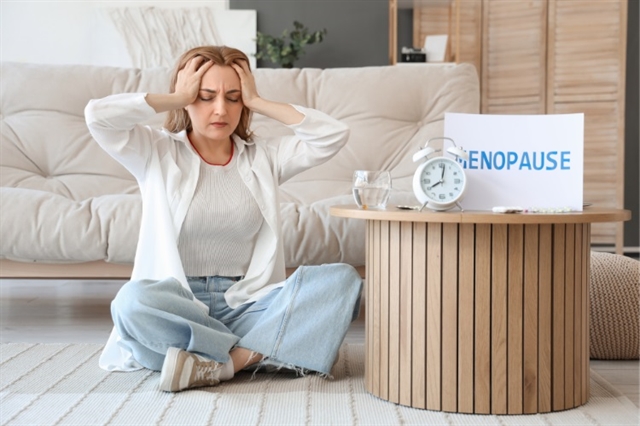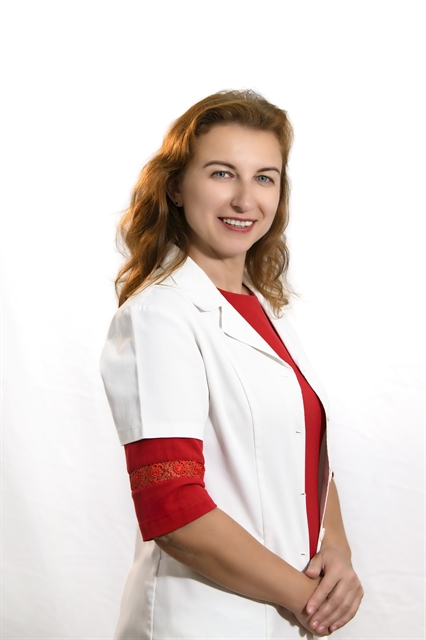 Life & Style
Life & Style

Dr. Olga Sambolska*
Menopause typically occurs between ages 45 and 55, but the timing varies depending on race, ethnicity, country and health behaviours. The average age of menopause is 51.
Many women begin to experience menopause symptoms during the perimenopausal transition, often without realising the cause.
Menopause is caused by the natural aging process and ovarian failure, but in some cases can be caused by surgically removed ovaries or radiation or chemotherapy exposure to ovaries.
Understanding menopause symptoms
Menopausal symptoms can be divided into a few main groups: vasomotor symptoms, psychological symptoms, physical and metabolic changes and genitourinary syndrome.

|
| Fatigue, joint pain, and body changes are common physical symptoms of menopause. — Photo canva.com |
The cause of menopause symptoms
The primary cause of menopause symptoms is deficiency of estrogens, mainly estradiol. This hormone is involved in around 30 physiological processes in the female body. As estrogen levels decline, regulation of many body systems is disrupted, leading to the wide range of symptoms during menopause.
Diagnosis of menopause
Diagnosis is mostly clinical, based on classic symptoms and absence of period for 12 months. Hormonal blood test used commonly to check FSH, LH (pituitary hormones that regulate ovarian function), estradiol and AMH (ovarian hormones that significantly low in menopause).
Treatment options for menopause
Lifestyle modification
This is crucial for menopause symptoms reduction. This includes not only avoiding smoking and alcohol, but also reducing caffeine and salt intake, maintaining a healthy diet with calcium, vitamin D and natural probiotics. Regular moderate exercise helps stabilise weight, preserve muscle, support heart health, and reduce stress and anxiety. Practices like yoga, tai chi, and meditation also help with mental symptoms and sleep quality.
Hormone replacement therapy (HRT)
HRT remains the most effective treatment for moderate to severe menopause symptoms. There are few forms of hormonal medicines: pills, gel, patches, pellets. Although HRT does not significantly increase risk of blood clots (venous thrombosis), stroke, uterine and breast cancer dose, duration of HRT should always be under gynecologist control. Each patient should be individually assessed for the benefit and risks, with regular monitoring of side effects and treatment effectiveness through annual checkups.
Routine monitoring
It is recommended to have regular blood tests to check lipid profile, glucose levels, blood coagulation, liver and thyroid function. A pelvic exam along with pelvic ultrasound, breast ultrasound, and mammography should be performed annually. Bone density testing may also be advised based on personal or family history of osteopenia or osteoporosis.
Non-hormonal and herbal options
Non-hormonal therapies are suitable for women with mild menopause symptoms or those who cannot use HRT. Some herbs contain substances that act like estrogens and may help relieve vasomotor symptoms. These include black cohosh, red clover, evening primrose oil, soy isoflavones, contain. However, herbal products can interact with various medications such as antidepressants, anticoagulants, and hormone therapies. Since quality and dosage can vary widely between brands, their use should always be guided by healthcare providers.
Please do not wait for menopause symptoms to disappear on their own or become more severe. Talk to your gynecologist to assess your symptoms, evaluate risk factors and find the right support to improve your quality of life.
Menopause is not the end – it’s a new chapter in a woman's life, one that can be fulfilling, and full of new experiences, emotions and encounters. — Family Medical Practice

|
| Dr. Olga Sambolska. — Photo courtesy of Family Medical Practice |
*Dr. Olga Sambolska graduated from Lviv National Medical University in 1996 and commenced her medical career at the Volyn Regional Maternity Hospital in Ukraine. Since 1998 she has been a registered obstetrics and gynecology doctor, providing healthcare to women in relation to pregnancy, birth control, menopausal issues, contraception, menstrual cycle diseases and sexually transmitted diseases. She is fluent in English, Ukrainian, Polish and Russian.
FMP Healthcare Group operates medical centres in major cities including HCM City, Hà Nội, and Đà Nẵng, offering consultations with international doctors, check-up centres, and emergency ambulance services.
Visit FMP Hanoi 24/7 at 298I Kim Mã Street, Kim Mã Ward, Ba Đình District.
To book an appointment, please call us at (024).3843.0784, or contact us via WhatsApp, Viber or Zalo on +84.944.43.1919 or email hanoi@vietnammedicalpractice.com.